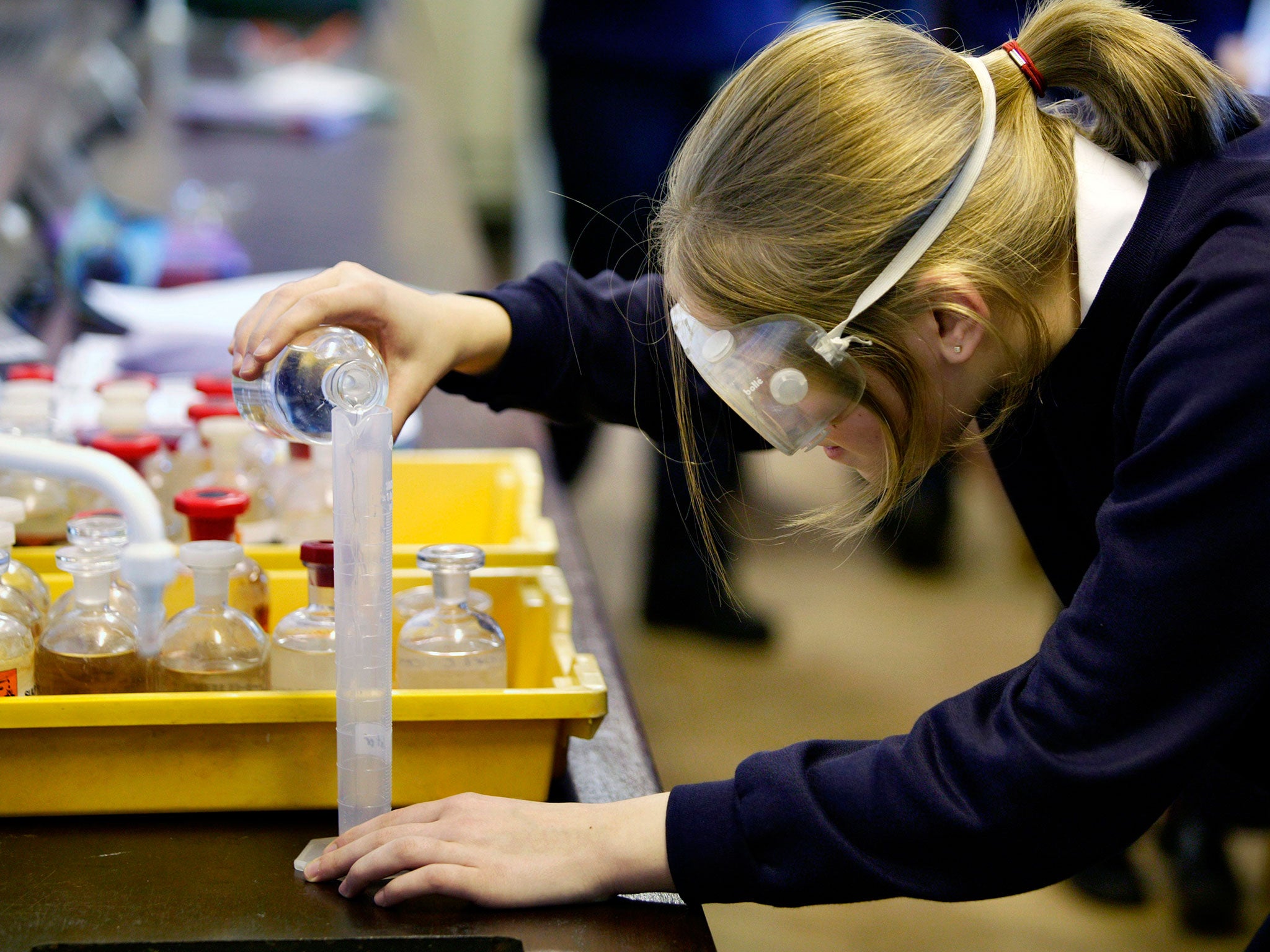Funding for poorer pupils helps more boys than girls, study shows
Extra money for schools with students who underperform is likely to go to the most disruptive children

Bright girls from poor backgrounds are falling behind in class as cash to raise standards is concentrated on boys, it is claimed today. Research into school spending reveals that boys on free school meals make 50 per cent more progress in secondary school than girls.
Schools are entitled to extra cash from the "pupil premium" for every disadvantaged pupil they take on. However a Nuffield Foundation study, carried out by Essex and York universities, concludes: "Highly able boys appear to benefit more from an increase in spending of £1,000 per pupil [the pupil premium] than girls of similar ability."
Boys still perform worse than girls overall, the study adds, but the more able catch up during secondary schooling.
Education experts, including head teachers and academics, say that they believe the report's findings show that schools could have focused too much on helping boys from disadvantaged backgrounds, as a result of earlier research showing that white working-class boys performed the worst of all ethnic and gender groups in exams.
"Boys in this group may have a tendency towards truancy and bad behaviour while girls may be present in class but quietly under-achieving," it concluded.
The experts suggested that the pupil premium should be targeted more at primary schools, because it was more difficult to improve pupils' performance once they had fallen behind.
"Targeting is effective," said Dr Birgitta Rabe, one of the lead researchers, "but at the moment not enough is being done to target resources to support able girls from poor families to achieve their potential.
"This study shows school leaders that they need to regularly evaluate the impact of spending on all those pupils who are falling furthest behind."
It coincides with a warning from a teachers' leader that UK schools are witnessing "a backlash on gender equality". "We are now seeing the annual hand-wringing by politicians and commentators about girls' attainment [compared with that of boys]," Chris Keates, general secretary of the National Association of Schoolmasters Union of Women Teachers, told a conference of her union in London. "No such soul-searching occurred when the position was reversed.
"We see agitation and angst, resulting in a policy agenda to recruit more men into teaching on the spurious and implicit assertion that women make inferior educators of boys and that boys need adult role models of the same sex," she said.
A breakdown of the statistics in the Nuffield research shows that boys in the top 10 per cent of the ability range make 50 per cent more progress between leaving primary school at 11 and taking GCSEs at 16 than girls. However, both boys and girls in the bottom 10 per cent of the ability range made little or no progress at all.
The research also shows that pupils from black, Indian, Pakistani or Bangladeshi origin who were achieving low test results at the end of their primary schooling were benefiting more from money spent in schools than white British or mixed race pupils with similar low test results.
It added that, where spending on supply teachers was high, it was "damaging the progress of all their pupils". "High spending on supply teachers may mean that a school is in difficulties," it says.
"It may show that teacher absenteeism is frequent or that jobs are left vacant for too long. Supply teachers may be less competent than permanent staff and their use disrupts planning and the relationship between pupil and teacher. Most pupils' progress suffers in schools where supply teachers are often used, particularly the less able."
However, spending on teaching assistants helps disadvantaged pupils succeed, it adds. "This suggest that these staff are used to support pupils who have been singled out for extra help, leaving teachers to deal with the rest of the class."
Their impact, it says, helps to close attainment gaps between rich and poor students or at least prevents them from getting larger.
The report, Who Benefits From Money Spent In Schools?, is published by the Nuffield Foundation, a charitable trust that aims to improve social well-being and funds research and innovation in education and social policy.
Subscribe to Independent Premium to bookmark this article
Want to bookmark your favourite articles and stories to read or reference later? Start your Independent Premium subscription today.

Join our commenting forum
Join thought-provoking conversations, follow other Independent readers and see their replies